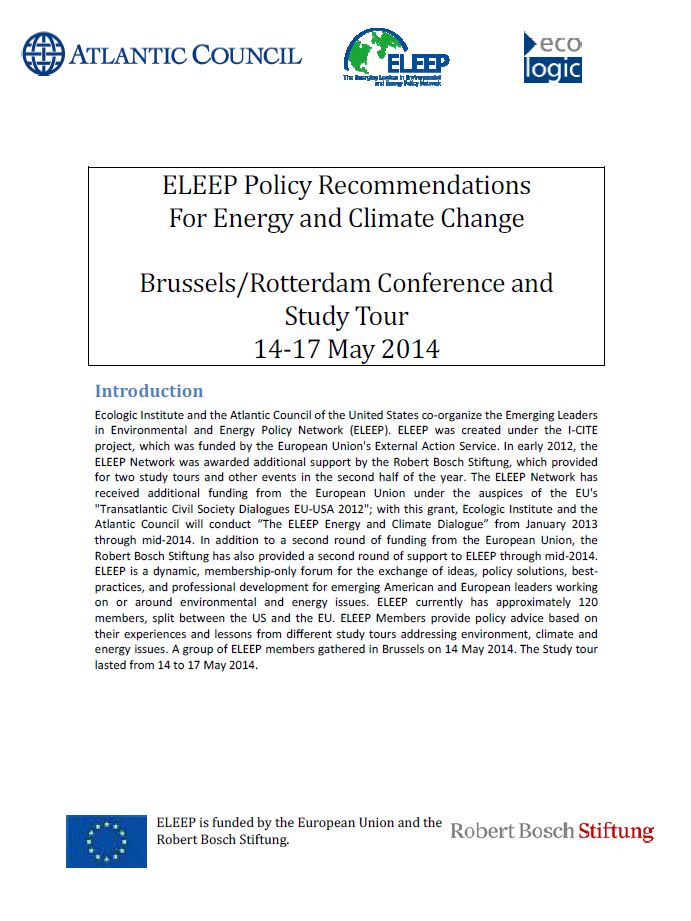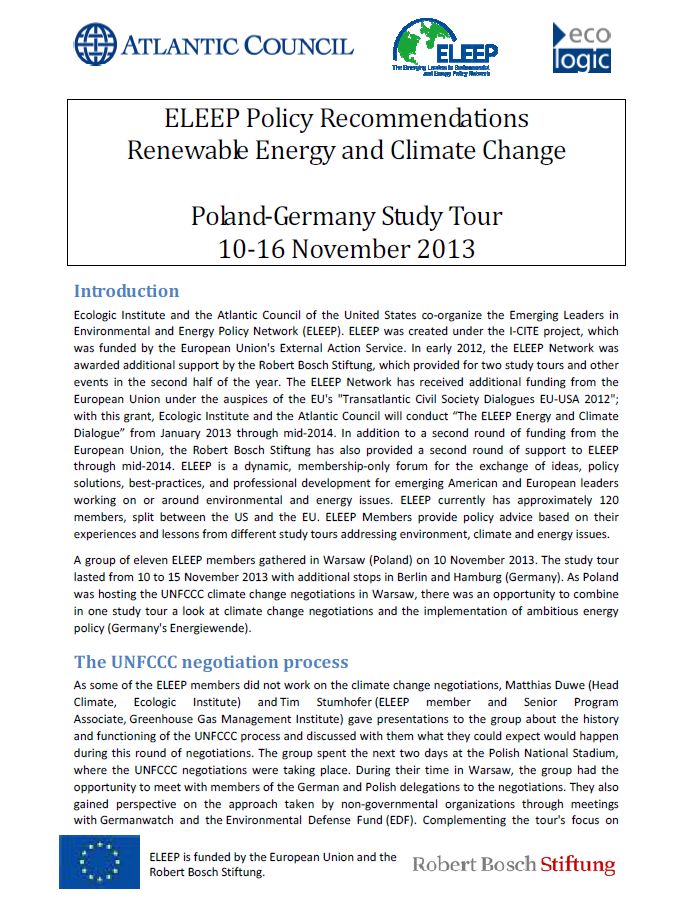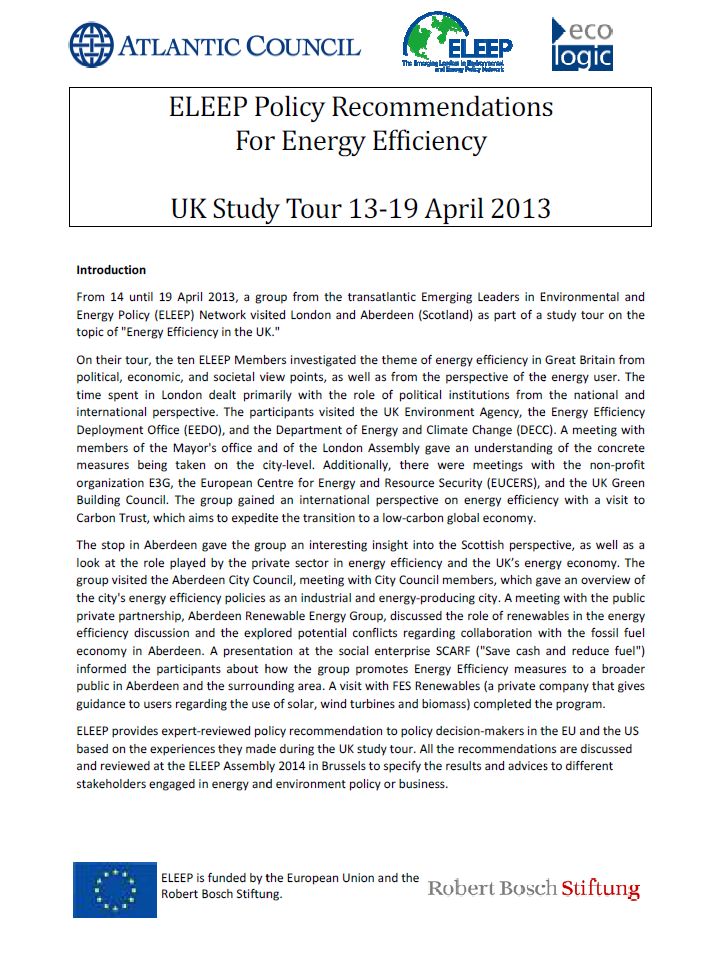Ascha, Germany: A Small Village with a Big Vision
- Publication
- Citation
Marcellino, Dominic 2012: Ascha, Germany: A small village with a big vision. Our Planet The United States Department of State (DoS). Washington DC.
In a blog post on the US State Department's "Our Planet" blog, Dominic Marcellino, Fellow at Ecologic Institute US, relates the story of how the village of Ascha in Bavaria went from being completely energy dependent to producing over 100% of its electricity and 50% of its heating needs from renewable energy.
The first I-CITE study tour on the transformation of the rural energy economy and opportunities for renewable energy visited the village of Ascha, Germany. Over twenty years ago, the mayor of Ascha, Wolfgang Zirngibl, shared a vision of transformation with his community: they would strive to eventually use renewable energy for 100% of their electricity and heat, producing all that they needed on their rooftops (solar) and in their fields (biomass and wind).
Dominic Marcellino, a Fellow at Ecologic Institute US, led the I-CITE study tour with Andreas Graf, Timo Kaphengst and Stephanie Wunder of Ecologic Institute Berlin and he developed a short blog post about Ascha's success in achieving this renewable energy vision.
Before building out its renewable resources, the village first invested in reducing energy demand and improving the efficiency of its buildings and houses. By 2011, the community had installed enough solar, small hydro, and biogas capacity to cover 120% of Ascha’s electricity needs and over 50% of its heating.
The post was requested and posted by Our Planet, a blog on innovating actions and people in the field of climate change put out by the US State department.
The I-CITE project included two other study tours: one on the transformation of industrial regions, and another on the transformation of the energy economy. The project was funded by the European Union and recently concluded with a conference in Brussels.
The I-CITE project also launched the Emerging Leaders in Energy and Environmental Policy Network (ELEEP). ELEEP is a network of Europeans and Americans, who exchange innovative ideas and policy best practices both through a first-of-its-kind application of Facebook and in face-to-face meetings, like the study tours mentioned above. ELEEP has received support from the Robert Bosch Stiftung to continue its work through the end of 2012.








